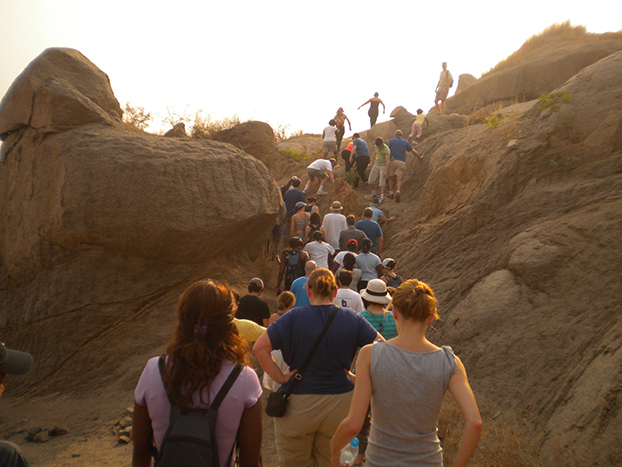According to ADB’s Africa Tourism Monitor 2015, global tourism has continued to grow enormously to 1.133 billion arrivals in 2014 – a 4.3% increase over 2013. The report further indicates that Africa saw 65.3 million arrivals, representing 5.8% of total international arrivals in 2014. With US$ 43.6 billion in receipts, Africa holds 3.5% of this market share. Tourism development is not only viewed as a key pillar for African development, but also as a major reflection of economic activities that directly or indirectly stimulate its growth.
According to the World Travel and Tourism Council (WTTC), the international tourism sector accounted for 8.1% of Africa’s total GDP in 2014. Sustained infrastructural development has also contributed to this solid growth. Economic expenditure by governments into the continent’s infrastructure including road and rail networks, rehabilitation of airports and seaports; has attracted investments both locally and internationally into the tourism sector such as developments of world class hotels.
With vital contributors that influence tourism in Africa (both positively and negatively), we cannot fail to acknowledge the fact that when tackling the tourism hype; various economic factors have to be put into consideration. Prevalently, consumer demand by far determines tourism trends not only in Africa but also globally. Tourists are the basic consumers in the tourism market, thus their preferences go a long way in determining for instance the cost of goods in the various destinations.
If the cost of let’s say accommodation is affordable in destination A, it is likely to attract an influx of tourists, which means more money coming into the continent. This leads to higher production of even more affordable products and services and the consumption cycle repeats itself.
The uptake of E-commerce in Africa cannot be left out when discussing economic influencers of tourism. If the ability for travelers to conveniently book their flights as well as accommodation online is anything to go by, then the entry of online travel agents such as Jovago and Expedia among others is just the genesis. According to a market-research firm- Euromonitor- 2013 saw online travel agents (OTAs) with combined bookings of $278 billion.
A report by Regional Economic Outlook forecasted growth in sub-Saharan Africa to remain strong, at about 5 percent in 2014 and 5¾ percent in 2015. This general economic growth has played and continues to play a major role in the industry. Jovago’s Managing Director Estelle Verdier notes that tourism and economy should also be seen as a two-way-street with Africa’s economic road map anticipating tourism as an indispensable contributor, which will lead to revamping the continent’s economy in futurity.
Source: TheNigerianVoice














RT @BizWatchNigeria: Tourists Are The Basic Consumers In The Tourism Market – https://t.co/S4QqGAAMt1 https://t.co/z3zI5fuw59
NEW POST: Tourists Are The Basic Consumers In The Tourism Market https://t.co/ImFLmQBavo https://t.co/TfN1yAguDo